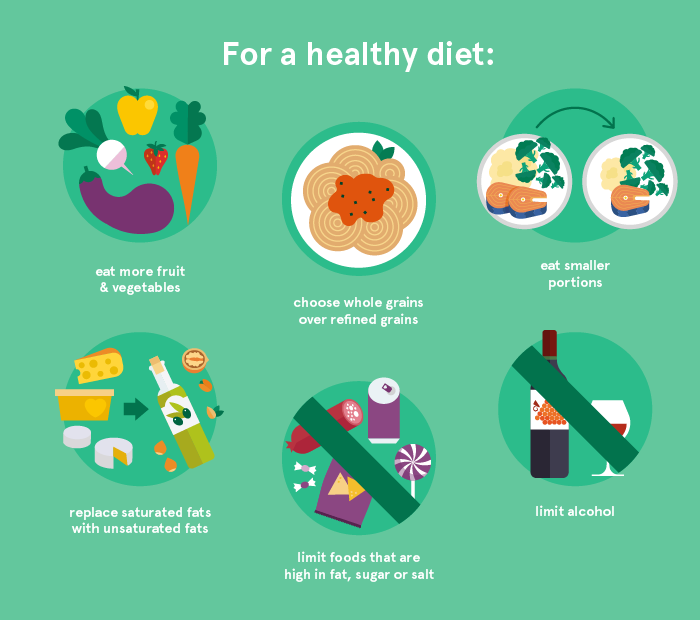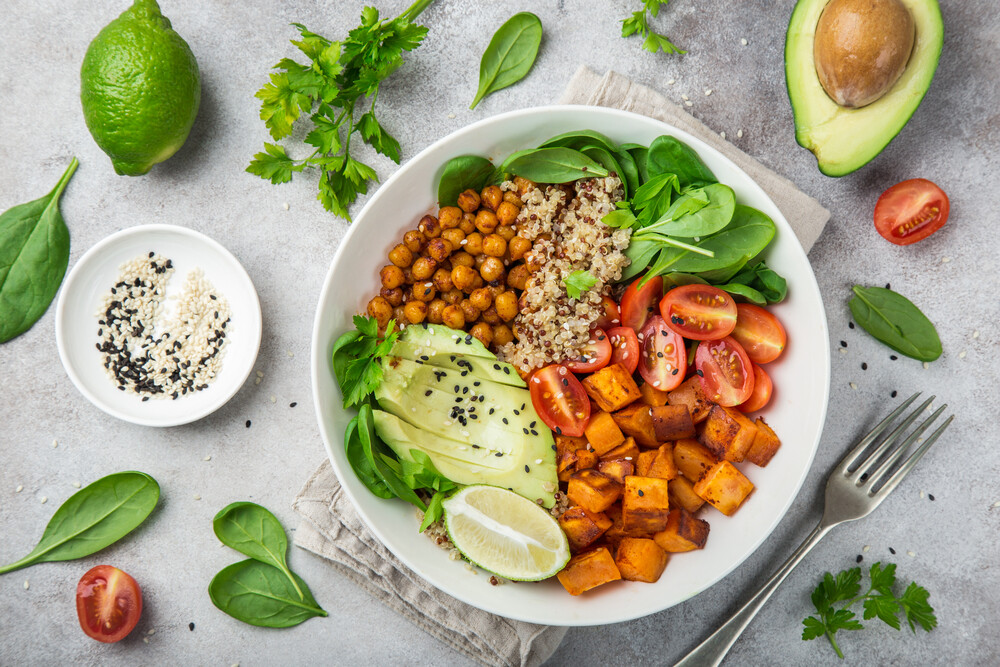Myth.
The high protein and low carbohydrate diet seems so promising. It is no wonder that many of us have considered or tried them. But does science support the claims? Here’s a breakdown of what you need to know before going on a high-protein, low-carb diet.
Many people who believe in this myth defend it by claiming that “high carbs can spike your insulin which leads to fat storage.” Let’s break this down:
Do carbs increase insulin level?
Yes, they do.
Does insulin cause fat storage?
No.
The Promise
Keto, Paleo, and Zone diet are a few low-carb diets that promise you’ll lose a few pounds, feel younger, while reducing the risk of heart disease.
The Truth
People lose weight on high protein plans because they take in fewer calories, not because of the high protein amount they are consuming. Diets work by lowering calories, and where the calories come from doesn’t matter. 1
And yes, we know that you have that friend who swears by the low-carb diet, who is showing immediate weight loss. But it turns out, carbohydrates are stored in our body as glycogen, which is bound to water. So as your body burns through all the dietary carbohydrates and glycogen stores in your body, the water that’s attached to it also gets flushed away, resulting in a loss of “water weight”, and not fat loss. 1
So, in the short run, a low-carb diet may seem to work well, and can help you lose 5, 10, 12 lbs. People who want to try these diets should understand that, although safety cannot be guaranteed, “they seem to be safe for short-term use (up to 6 months) as long as weight loss occurs.” 2
But in the long term, research says otherwise. There’s been no evidence that a low carb diet is superior than an energy-restricted diet. 2 There’s also been other health consequences that have been pointed out.
A high protein diet can overwork your kidneys. It can increase the risk of heart disease as saturated fat-laden red meat are usually part of the many high protein diets. 1
The low carbohydrate diet can also leave you feeling fatigue and nauseated. Moreover, excluding carbohydrate sources from our diet means further compromising the intakes of vegetables, fruits, and wheat and grain products and replace them with usually high fat options. These foods are an important source of energy, fiber, vitamins and minerals. 1
When you don’t eat enough carbohydrates, muscle glycogen is depleted and a catabolic (breaking down) hormonal environment is created, which means more protein breakdown and less protein synthesis. This means slower muscle growth – or even muscle loss. 2
But what about a low carb vegetarian diet?
The main protein source in a vegetarian diet includes nuts and seeds, beans, vegetable, dairy products. However, it is important to notice that all of these protein sources are also fairly high in carbohydrates. You would be depriving yourself from not only carbohydrates now, but also foods that are the main source of protein in a vegetarian diet. Maybe combining the low-carb craze and the vegetarian trend isn’t a great idea after all.
The Bottom Line
A balanced, diverse, and complete diet that includes carbohydrate from fruits, vegetables, whole grains, legumes, in addition to low fat dairy products and meat and alternatives is encouraged for good health and should be tailored to your needs! It’s probably best to steer clear of high protein, low carbs diet as they have no proven long term benefits and are linked to many health problems.
While a low carb diet may not be for you, research has shown that it can be beneficial for a certain group of people. To find out what the perfect plan is for you, consult our dietitian and together you can work on a meal plan that will help you without the unnecessary restrictions!
Don’t overthink, don’t overly restrict and enjoy a wide variety of minimally processed, whole and fresh foods!
References:
Steffen, L. M., & Nettleton, J. A. (2006). Carbohydrates: how low can you go? The Lancet,367(9514), 880-881. doi:10.1016/s0140-6736(06)68357-8
Stein, K. (2000). High-Protein, Low-Carbohydrate Diets. Journal of the American Dietetic Association,100(7), 760-761. doi:10.1016/s0002-8223(00)00219-4


